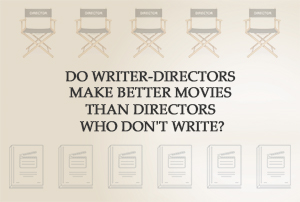
In past research, we’ve seen just how much overlap there is between the role of film director and screenwriter – 74.9% of directors have received at least one movie writing credit and 34.3% of writers have received a directing credit.
There’s no doubt that the roles are heavily linked, with both being critical in the creation, shaping and telling of characters and plots. But at the same time, many aspects of the jobs differ. Directors are responsible for so many elements outside of the script that one could argue that either (a) this means they have more tools to bring a story they create to life; or (b) that they cannot focus and specialise in the writing process.
I was reconnected with this debate last week as a reader got in touch to ask if was better for a director to also be a writer on a project, or if it was better to leave those roles to different people. Sadly I’m not going to give a definitive answer one way or another. It’s a personal, subjective and contextual question, which data alone cannot answer.
But we can use data to inform our views. I turned to my database of 8,096 live-action, fiction feature films released in US cinemas over the past two decades and by bringing in measures of quality (namely, IMDb and Metacritic scores) we can look for patterns.
Write here, write now
Let’s start by looking at how frequently directors have a hand in the writing of their movies. It turns out – pretty frequently. Over the past two decades, 61.3% of movies credited at least one of the directors and also being one of the writers.
Interestingly, this has remained pretty static over these twenty years, despite massive changes the industry has experienced in production, distribution and exhibition.
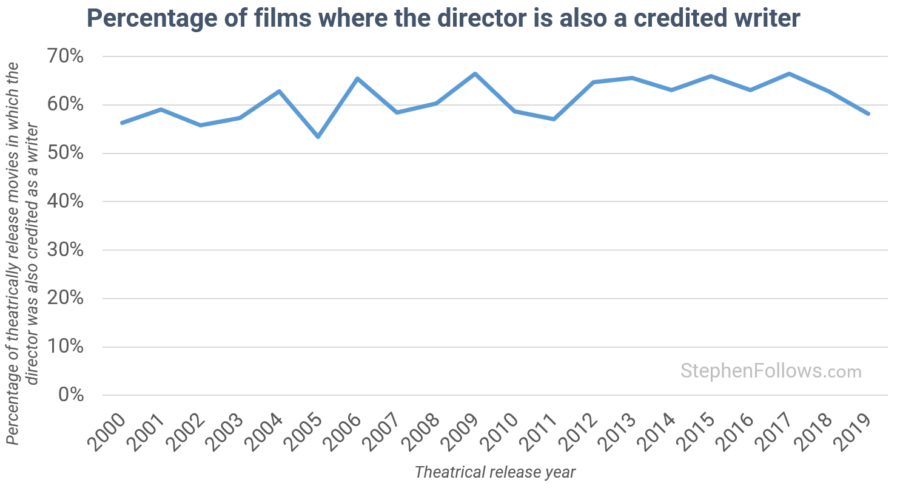
Are movies by writer-directors better movies than those made by non-writing directors?
The quality of a movie is always tricky to define and measure precisely. However, as a shorthand for “How good is this movie?” we can use IMDb user scores to represent the audience and the Metascore to represent critics.
The topline answer from both groups is – yes, on average, writer-directors make (slightly) better movies than their non-typing peers.
The average IMDb score for movies from writer-directors was 6.33, compared with 6.18 for movies with no writer-director. Writer-directors have scored higher in 16 of the past 20 years, although in the most recent decade the difference has been marginal.
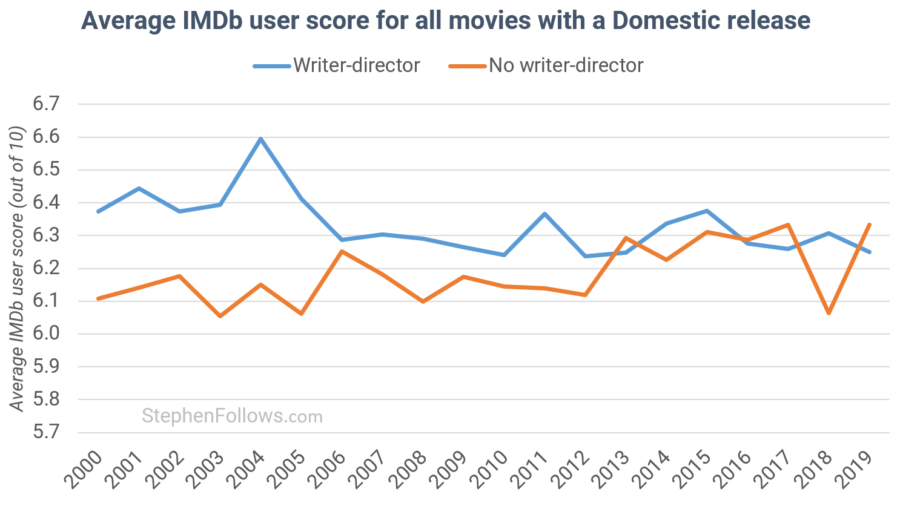
Film critics were more effusive of their love for writer directors (average score of 58.7 verses 50.4) and more consistent (writer-directors come top in every year I studied).
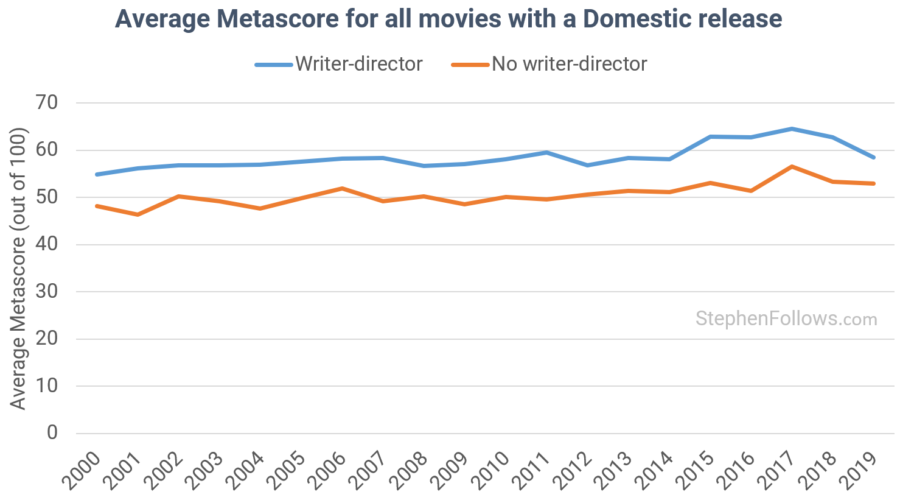
A twist in the tail
But this is not the end of the story. In looking at the data I discovered a fascinating detail – while it’s true that excellent movies are more likely to have been helmed by a writer-director, it’s also true that the worst movies are also most likely to be written by their director!
The chart below shows the percentage of films that have a writer-director, grouped by their IMDb user score. It reveals that writer-directors make up 63% of movies with the lowest score, 53% of movies with middling scores (in this case between 5.5 and 6.0) and 72% of movies with a score of over 8.5.
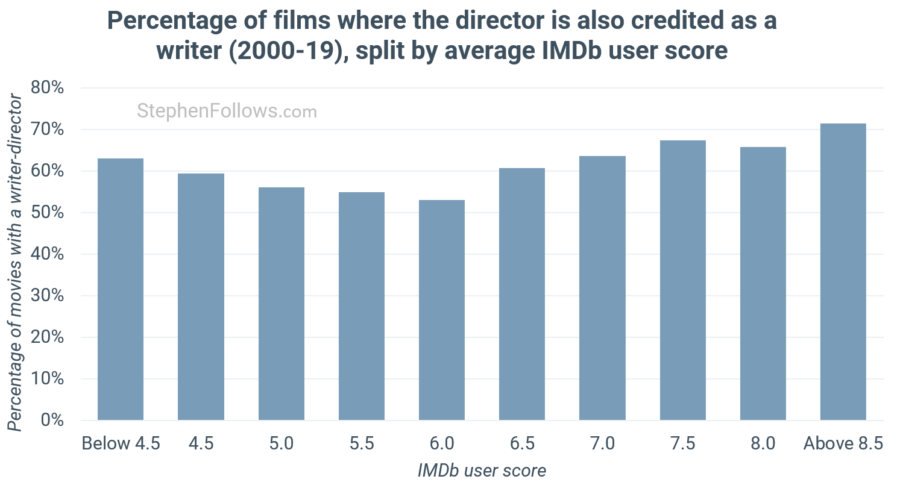
The data doesn’t reveal why this is. Among the reasons could be:
- Hit and miss – Having a writer-director is a gamble, which can pay off handsomely but also comes with the risk of a poor/confusing result.
- Movie by committee – Having many creative voices at the top could drag a film to the middle, whether that be up from being terrible or down from being brilliant.
- Correlation, not causation – It could be that that the kinds of people who push to both write and direct also happen to fall into one of two camps – the talented and the untalented.
I’ve tried to get further under the skin of this result but I haven’t been able to prove anything conclusive. What I can say, is that it’s not the same for every genre. Some types of films are more likely to benefit from having a writer-director, whereas it doesn’t seem to matter for others.
Three genres that strongly reward writing-directing are romance, family and comedy, whereas the writer-director agnostic genres include dramas, thriller and sports movies.
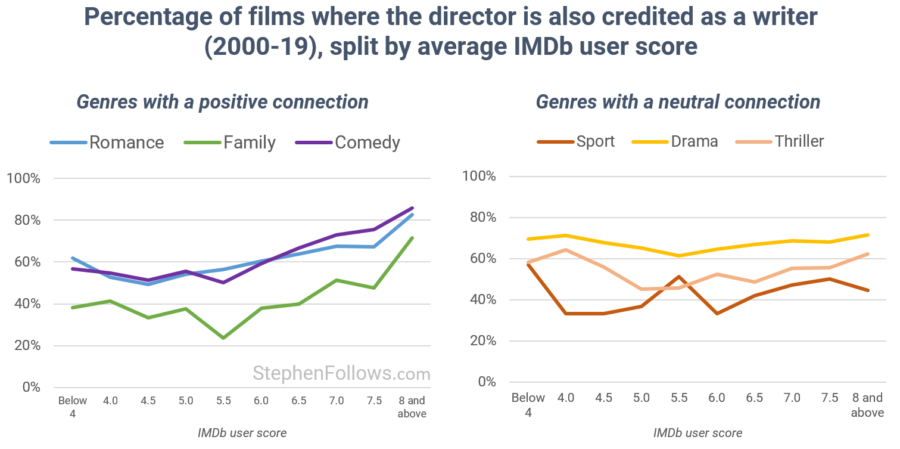
Notes
The data for today’s research came from a variety of sources, including IMDb, Wikipedia and Metacritic. This research is focused on fiction feature films (so not short films, TV movies, documentaries, etc) and includes all movies releaase in cinemas in North America.
I wanted to get to the heart of the idea of co-creation across the writing and directing roles, and so I took a broad view of how a writer is defined in today’s research. I included everyone who got an official writing-related credit on a movie, covering direct screenwriting credits (i.e. ‘screenplay by’), and source elements, such as ‘story by’, ‘characters by’ and if the director was an author of the source material.


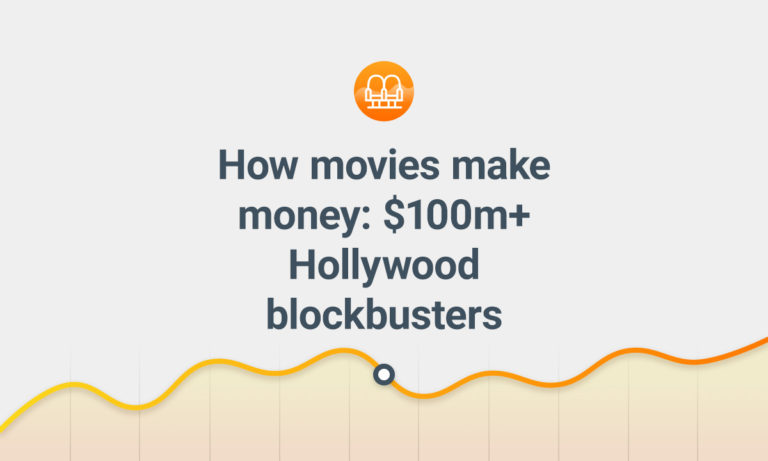
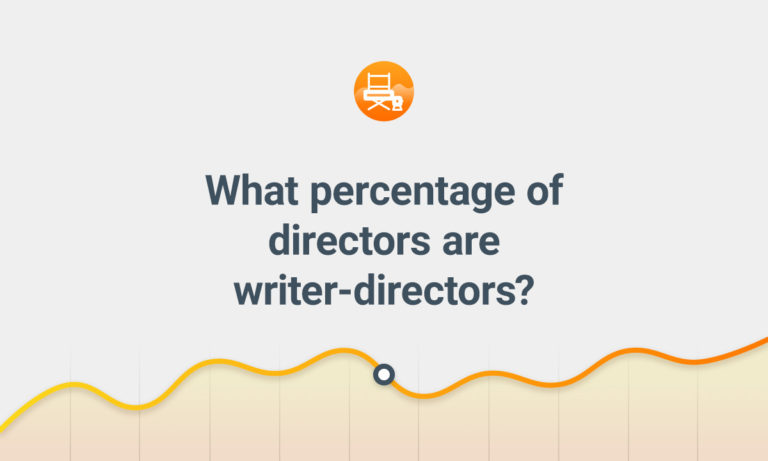

Comments
This is amazing data. I am very nervous to write anything publicly, but it’s time I find the right writer/director to tell the real story of my wrongful termination as a women’s basketball coach at Fresno State in 2005. I sued and won the largest verdict in history. 19.1 million. 35 other women were fired and the details I need to tell the person who is willing to take this on. Gloria Allred offered me a contract, I waited it out. I’ve waited for the right time fir my children and for college sports. There is murder, sex, drugs, truth, lies, a 9.5 WEEK jury trial, with the jury deliberating only 2.5 hours. I hope you contact me.
I’m inclined to believe this is a case of correlation, not causation. It seems likely that there’s a significant enough number of filmmakers that know their limits so that the majority of people who attempt to take on both roles are either confident enough in their own ability after working hard to hone their craft or people who have overestimated their ability to juggle both roles (and possibly their talent level in the individual disciplines as well). That’s my theory, at least. Thanks for another interesting look into the data.
The real question here is:
Do directors who take credit for working with a screenwriter make better films than directors who don’t take credit for working with a screenwriter?
Then, let’s have a serious discussion about Kubrick’s and Truffaut’s approach to working with screenwriters.
Thank you for this, I would be interested to see the data focused more on the traditional writer-director rather that your broadest definition that includes any and all writing credits – for instance, when the director is sole credited writer or one of two credited writers only – what does the picture look like then? My guess is that it would be a more exaggerated version of the curve you already have, with the films being more pronouncedly either great or terrible – and, I think, the ‘terrible’ peak would be higher… just putting this out there, thanks again!
Hi Matthew, Ah interesting. So you’re suggesting that when one person is the main sole creator (i.e. only director and only writer) then this may produce different results to when the director is just one or a number of writers? I will certainly have a dig into the data and see what we can see. Thanks for the suggestion! Stephen
Stephen — First of all, this is an incredible site. Secondly, I’m a filmmaker and I had the same question as Matthew regarding solo “Writer/Directors.” I would love to see the data on this if you have it. Thanks again — Sean